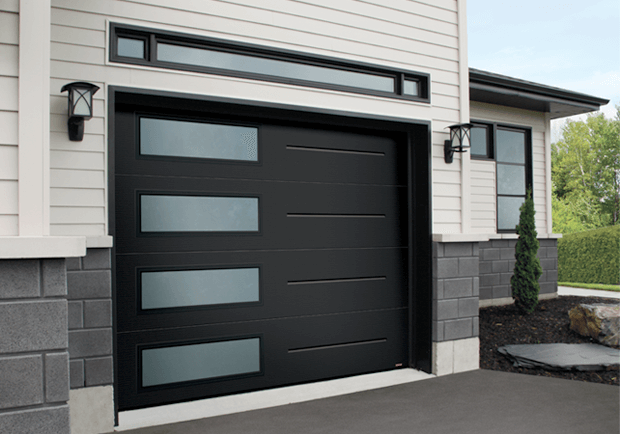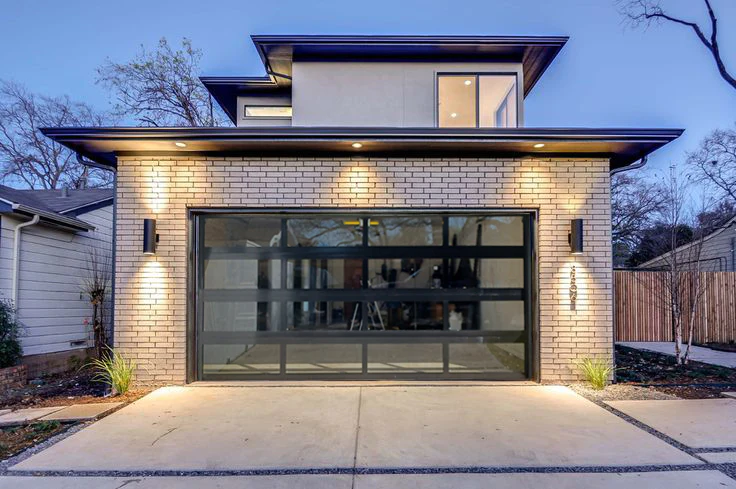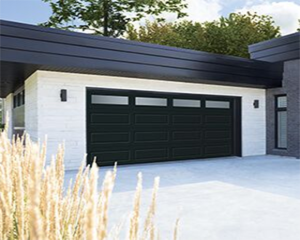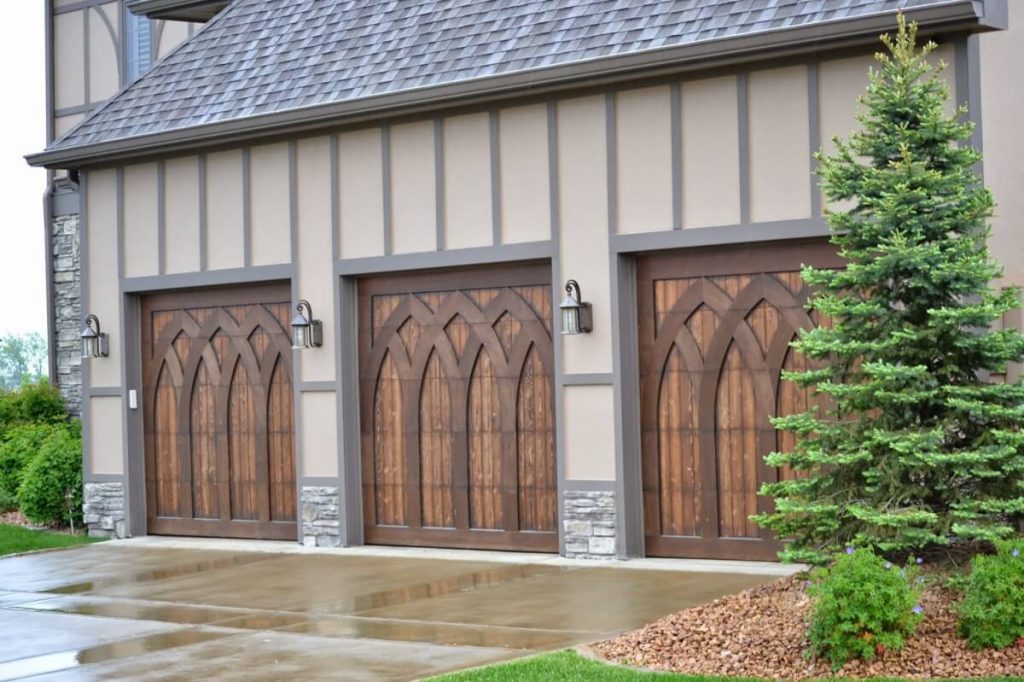There are several garage door materials people gravitate to, including vinyl, wood, composite, steel, aluminum, and fiberglass. If you’re replacing your garage door, material quality is of utmost importance. It affects everything from how well-protected your vehicle is to your home’s energy efficiency. This rundown of the best garage door materials can help you make informed decisions. It explains the most common garage door materials and their pros and cons.
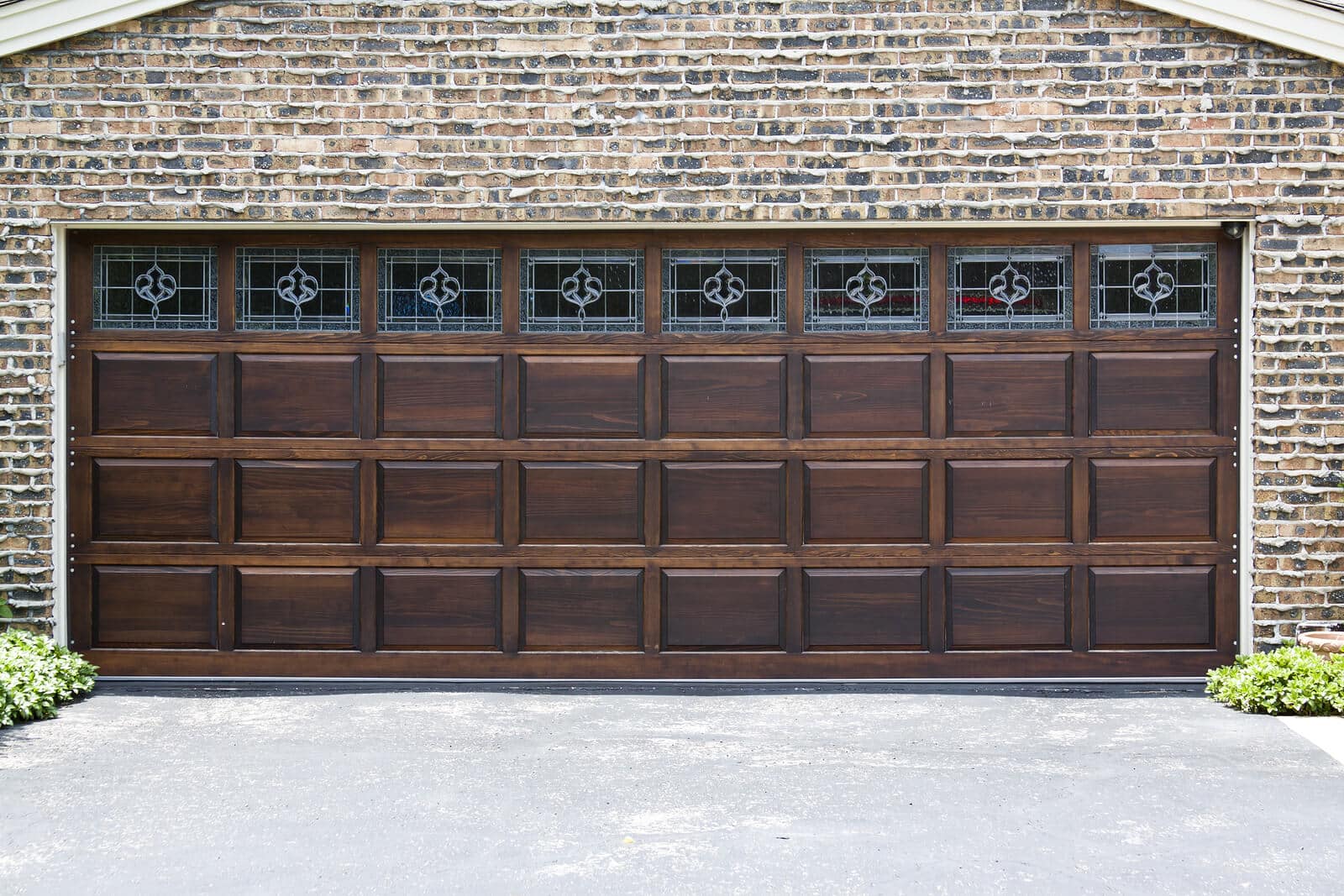
Vinyl: Durability
If you prefer a lightweight, high-performing material that requires little maintenance, vinyl is the way to go. It is extremely solid. While other garage doors are susceptible to cracks, dents, rust, and other damage, vinyl retains its durability year-round, in practically any environment including coastal areas where salt, sand, and wind can lead to corrosion. Vinyl is also fade-resistant and doesn’t need frequent repainting, although color choices are often limited.
Wood: Classic Look
For traditional garage doors, wood provides beauty along with classic grain patterns, textures, abundant color choices. The natural appearance of wood affords warmth and can boost curb appeal. It can be factory-painted, or you can sand and refinish it as you please. If you’re concerned about dents and small chips, these can be repaired. And wood comes with insulating properties. In fact, it’s a better insulator than steel, and is often treated to resist splitting, warping, and rot.
Wood Composite: Strength/Realism
As strong as steel, wood composite materials can include overlays, grooves, and other realistic details for that classic look. Recycled wood fibers are used to produce composite doors. These garage doors can be stained, painted, or finished in any way you like. Wood composites also resist rot and splitting much more effectively than pure wood. Plus, they often have polystyrene insulation to contribute to energy efficiency.
Steel: Flexibility
Steel generally costs less than wood, requires little maintenance, and doesn’t need repainting or staining. There is little upkeep at all. Steel is the economical choice and can even be refinished to mimic a wood surface. It isn’t very insulating, but there are stronger insulated products including 25-gauge double-layered steel garage doors. Good insulation can block sound, prevent temperature infiltration, and provide wind-resistance. Even add natural light to your garage with built-in window panels.
Aluminum: Lightweight but Steel-Like
If you want a garage door that’s lightweight yet less expensive, aluminum is much like steel. You can add wood texturing and protective finishes. There are also many colors to choose from. If rust-resistance is a priority, aluminum is a good choice. The only downside is it is more prone to being dented.
Fiberglass: Insulating
It’s often said you can’t have everything, but a fiberglass garage door can bring you pretty close. Fiberglass resists rust and corrosion, is thermally efficient, and offers that classic look of wood. The material holds up well in hot climates. Fiberglass garage doors have two layers of fiberglass, with polyurethane insulation in between, attached to a steel frame. Fiberglass doors are extremely sturdy and customizable while resistant to moisture and insects.
Contact Precision Door Service for Advice on the Best Garage Door Materials
The best garage door for you depends on your home and unique needs. At Precision Door Service of Las Vegas, we help homeowners in Las Vegas, Henderson, Summerlin, and other communities choose garage door materials. We also assist with installation from start to finish. Our technicians are certified and extensively trained so you can expect top-quality service. To ask questions, obtain a friendly quote, or schedule service, call us toll-free at 866-265-4824 today.


